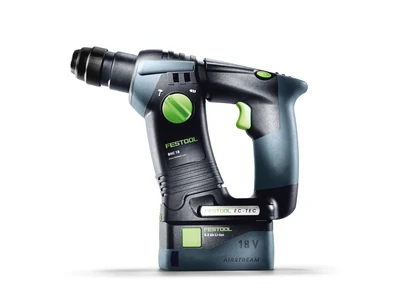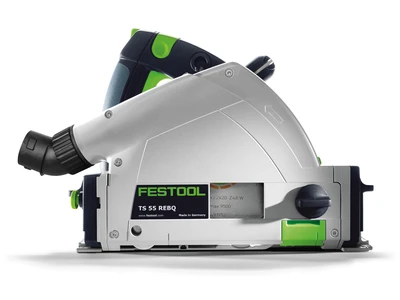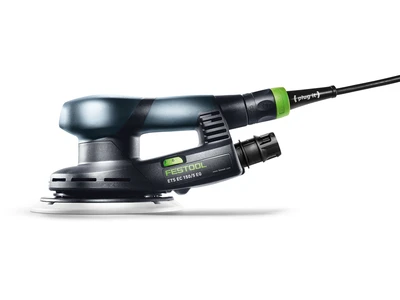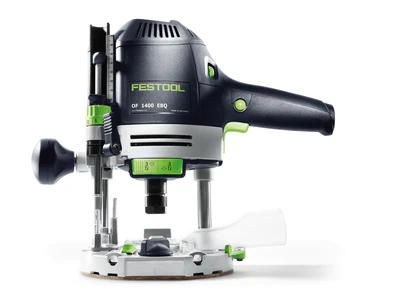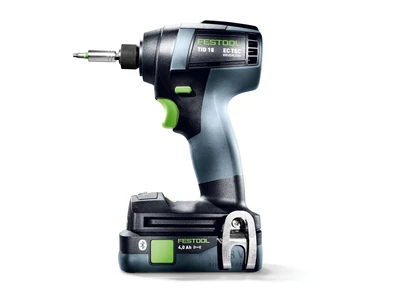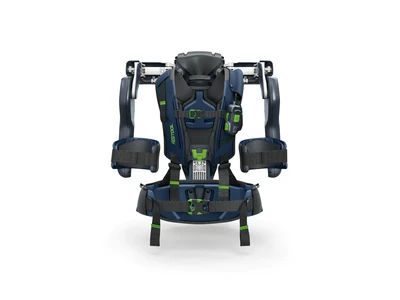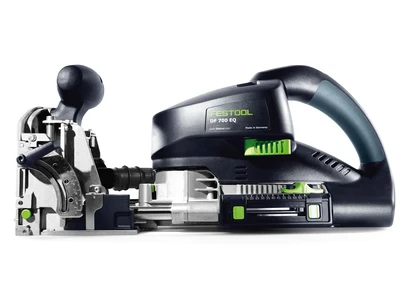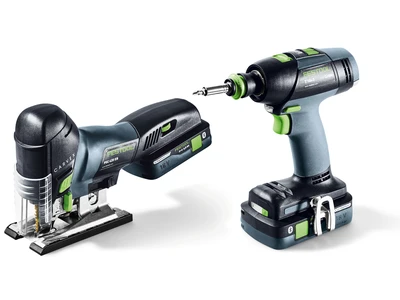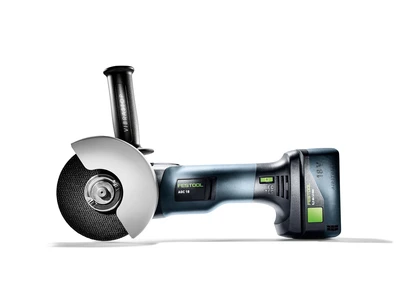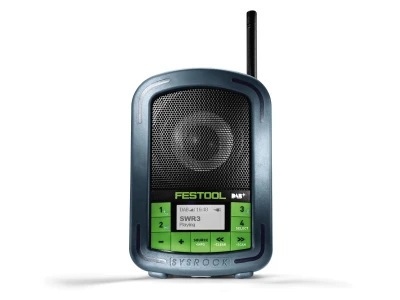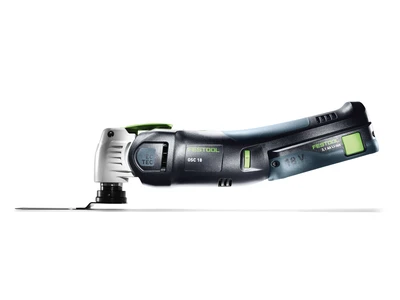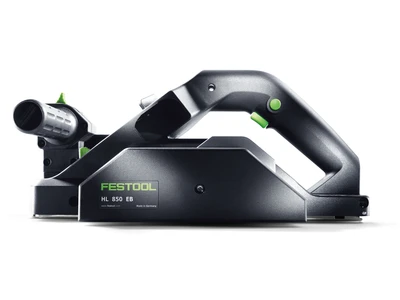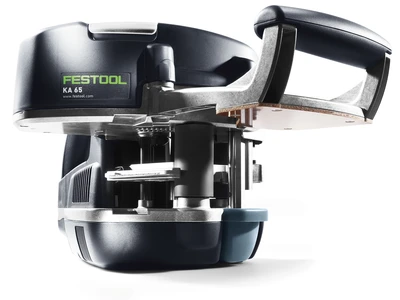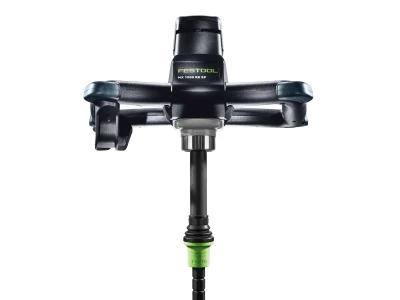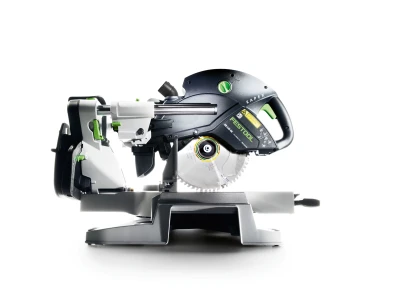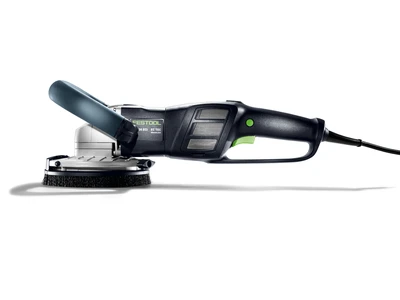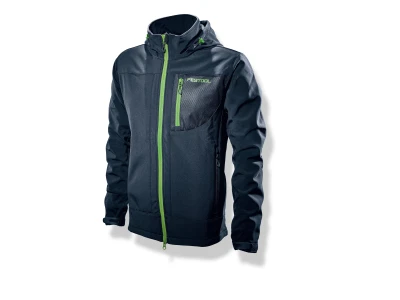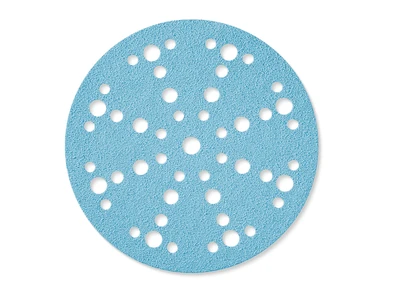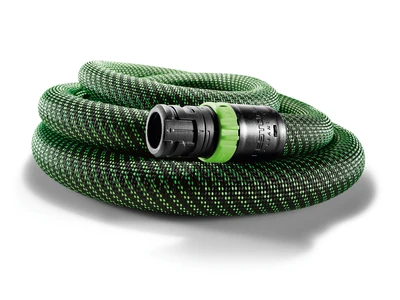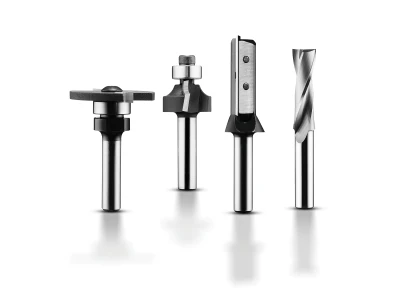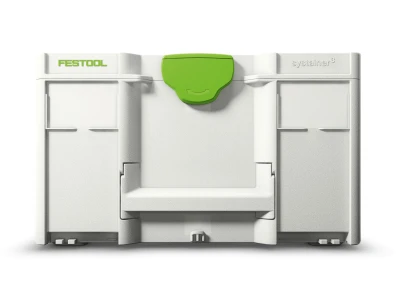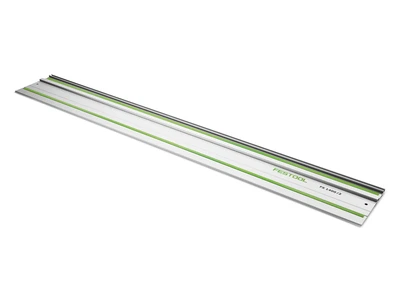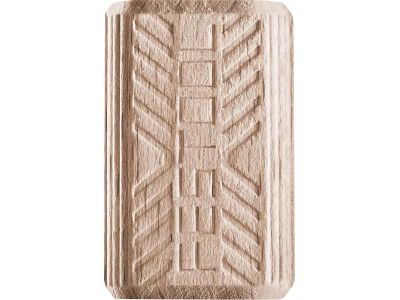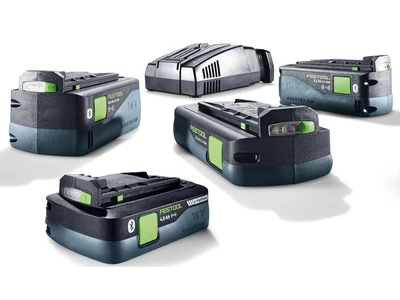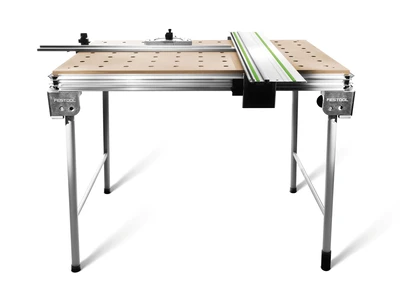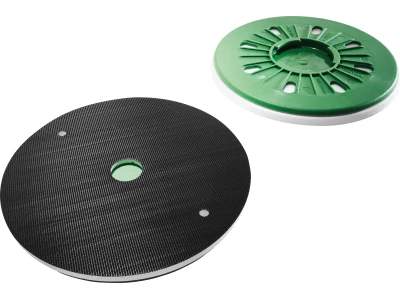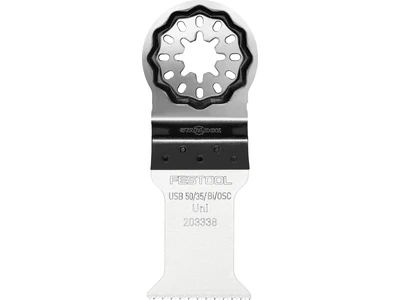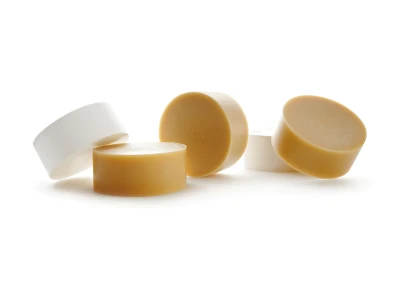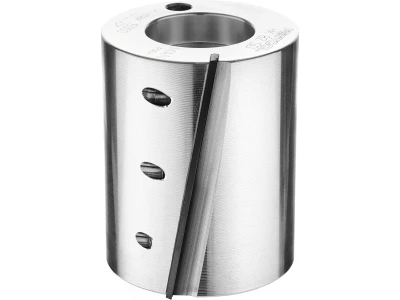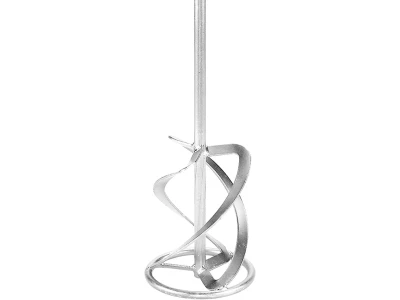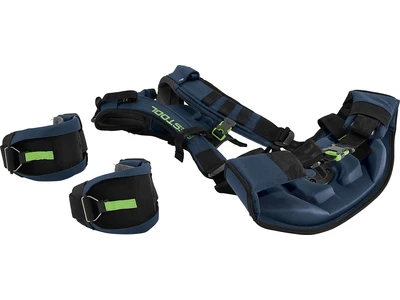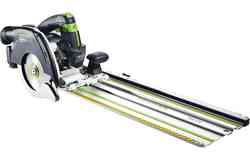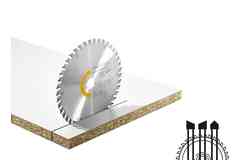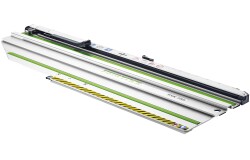Manufacturing a weatherboard » Instructions with the portable circular saw
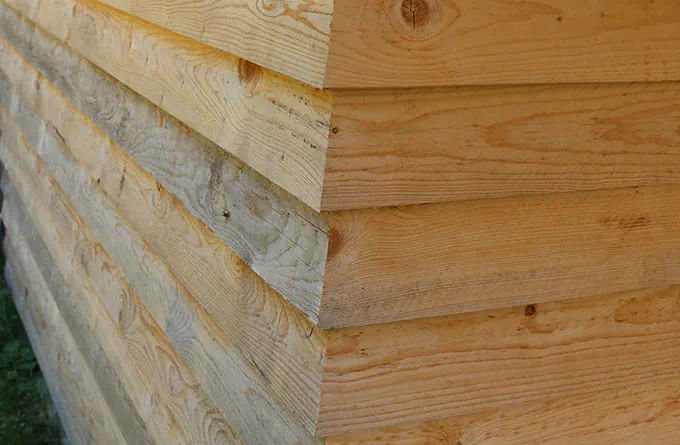
Description
Tools/accessories
Procedure
-
Aligning and securing the rail
First, the weatherboard is fixed to one side of the wall as usual. The edges are removed from the shuttering boards with a sufficient overhang so that they protrude laterally at least twice the board thickness.
To fasten the guide rail, two or three small holes can be drilled into the rail. Using these holes, the rail is fastened at the measured position.
-
Cutting a section
Along the guide rail, the HKC is now used for the first mitre cut through all shuttering boards. (For larger board thicknesses, the TS 75 can be used for this cut as an alternative.)

-
Measuring the angle
The correct angle, which must be set on the rail, can be taken from the straight mitre cut as shown.

-
Transferring the angle
This cross cutting angle is then set on the cross cutting guide rail via the sliding stop according to the scale.

-
Adjusting the saw
In addition, the saw must be tilted. This angle is determined as shown and then set on the saw.

-
Positioning the portable circular saw
The saw is now placed on the workpiece with a coupled cross cutting guide rail and two stop pins.

-
Cross-cutting
Cross-cutting can now be executed very easily and with precision. The settings are repeatable for the subsequent cross-cuttings.

-
Assembly
The cut board is screwed together as usual. If required, a compriband can be applied for sealing.

-
End results
The result is a clean corner finish for the weatherboard. Note: This corner formation is visually appealing, but not ideal in terms of constructive wood preservation.

-
Our illustrated guides and work results are documented working steps that we have performed in practice. They are individual examples and do not guarantee or promise that users will obtain the same results. The results will depend on the user's experience and skill, as well as the material being used. Illustrated guides do not replace any Festool operating manuals and/or safety instructions. Liability for ensuring that the information, instructions and applications are free from content defects and defects of title, in particular with regard to the absence of defects, correctness, freedom from third party intellectual property rights and copyrights, completeness and fitness for purpose, is excluded. Claims for damages made by the user, regardless of their legal basis, are excluded. These liability exclusions are not applicable if the damage was intentional or caused by gross negligence, or in cases of statutory liability.
We cannot accept liability for damage resulting from defects.↑

